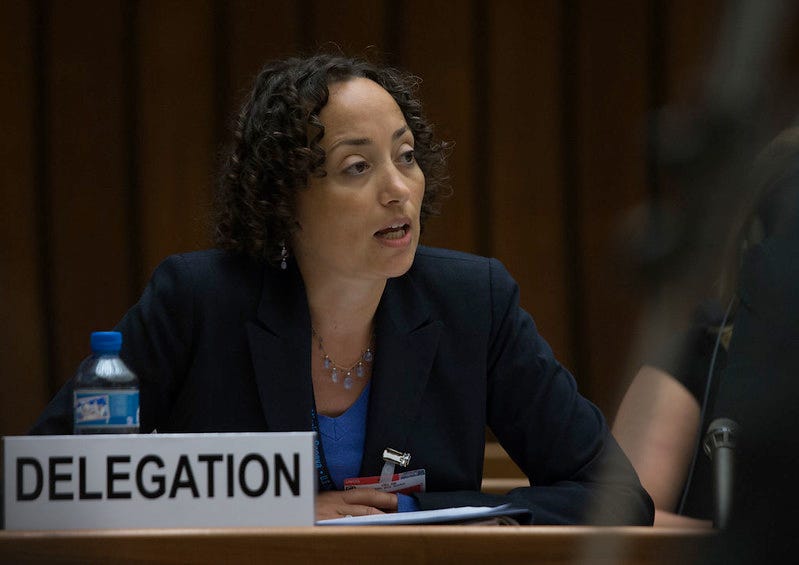The (maybe) changing face of the Senate GOP
Wake Up To Politics: The (maybe) changing face of the Senate GOP
Good morning! It’s Tuesday, October 26, 2021. Election Day 2024 is 1,108 days away. Election Day 2022 is 380 days away.
Analysis: The (maybe) changing face of the Senate GOP
A trio of Trump-allied Senate candidates are facing renewed questions over their personal lives — but they’re all riding high in Republican primaries regardless, leading in the polls and raking in money and endorsements.
In Georgia, Trump coaxed former NFL star Herschel Walker into challenging Sen. Raphael Warnock (D-GA) in one of the most hotly-contested Senate races of 2022.
Top Republicans were initially skeptical about the first-time candidate, but the party has since come around: Senate Minority Leader Mitch McConnell (R-KY) has offered praise to Walker, while his top deputy John Thune (R-SD) joined Trump in endorsing the Georgian on Monday.
The growing institutional support for Walker comes despite new reporting on allegations from his ex-wife and an ex-girlfriend that he acted violent towards them and threatened to kill them.
In Pennsylvania, Trump’s pick to succeed retiring Sen. Pat Toomey (R-PA) is another relative political novice, Army veteran and 2020 congressional candidate Sean Parnell.
This is another pivotal Senate battleground, yet Trump’s pick is again someone with questions about his past: Parnell’s ex-wife was granted two protection-from-abuse orders against him, although the orders were later expunged and it is unclear what led to them being sought.
Finally, in Missouri, the former president has not made an endorsement in the race to replace retiring Sen. Roy Blunt (R-MO). Each of the Republican candidates has sought to claim Trump’s mantle to some degree, but none more so than former Gov. Eric Greitens (R-MO), who has repeatedly traveled to Arizona to talk up the election audits there and counts Trump allies Rudy Giuliani and Kimberly Guilfoyle among his top endorsers.
Yet, Republicans outside of MAGA world are beginning to mobilize against Greitens in fear that he’d compromise their chances of winning the general election. There’s a reason Greitens is the state’s former governor, after all: he resigned in disgrace in 2018 amid allegations that he sexually assaulted his hairdresser and took pictures of her while she was undressed and blindfolded to use as blackmail.
In all three primaries, the power of Trump’s endorsement — or of fully embracing him — is evident. Just as Trump himself was able to win the presidency in 2016 despite dozens of allegations of sexual misconduct, all three of those Senate candidates have led in virtually every public poll of their primaries, showing that the former president’s support can still wipe away complicated personal questions from the minds of Republican away.
All three have raised huge sums of money in their bids, which is part of the reason some top Republicans have begun to warm to the trio: Walker, for example, has raised nearly $3.8 million for his Senate bid, enough to turn skepticism from McConnell a few months ago into praise now.
But success in a Republican primary is different than a general election, of course. With the Senate split 50-50 heading into 2022, all three of those races are must-win contests for Republicans if they hope to retake the majority: Warnock is one of the top Democratic incumbents being targeted by the GOP, while Toomey and Blunt’s open seats are essential for the party to hold on to.
The essential nature of these races — and the personal allegations facing all three — is causing some Republicans to question the wisdom of following Trump’s lead in picking their candidates. These are also not the only races where Trump has made risky choices: He’s also thrown his support behind a House candidate, Max Miller, who has been accused of assault, and behind other Senate candidates such as Ted Budd in North Carolina disfavored by the Republican establishment.
Let’s game this out for a bit, though. Maybe not all of Trump’s picks will win in 2022, but let’s imagine that some of them do. And then that he seeks the White House once again in 2024, as nearly all of his allies now expect him to do.
The tug-of-war over 2022 standard-bearers shows how much different the Republican Party of Trump’s potential second term would be than that of his first. In Trump’s first White House stint, the Senate Republican Conference generally did stand behind him — but there were notable exceptions on some key issues, including fights over Obamacare, the border wall, tariffs, foreign interventions, and more.
Just after Trump left office, seven Republican senators voted to convict him for inciting the January 6 riot. One of them was Toomey, who could be replaced by the Trump-loving Parnell, just as the establishment-minded Blunt could be replaced by a much Trumpier successor.

Trump is trying to remake the Senate GOP in his image — and he just might succeed. If he does, it has huge implications for his possible 2024 presidential bid, and what a second Trump term might look like. Without much political experience, Trump delegated heavily to McConnell in his first go-around, often letting him dictate the GOP agenda and policy priorities.
But the Trump-McConnell relationship has fractured since January 6, suggesting the latter wouldn’t hold quite so much sway in a second Trump administration. Even if Trump doesn’t return to the Oval Office, if McConnell wins the Senate majority because of a slew of Trump allies, he could face all sorts of trouble, leading a conference that no longer feels loyalty to him — and possibly even some antipathy. (Greitens, for one, has pledged to oppose McConnell as leader due to the Kentuckian’s feud with Trump.)
In Trump’s first term, the Senate GOP was a bastion of the Trump-skeptical Republican establishment; in a second term, it could be stocked with MAGA acolytes — many of whom owe their primary and general election victories to Trump.
Suddenly priorities like the border wall — or changing America’s election laws — would be on the table. What few guardrails existed for Trump among Republicans before would fall way. And Trump knows it: there’s a reason he’s been making midterm endorsements left and right. It’s not just about 2022: the former president’s picks show that his eyes are already on 2024.
What else you should know
— Spending talks: “Manchin says framework ‘should’ be possible this week” The Hill
— New travel rules: “Biden administration unveils new Covid vaccine, testing requirements for travel into U.S.” NBC News
— Vaccines for kids: “Moderna data shows Covid-19 vaccine produced strong immune response in 6- to 11-year-olds” Wall Street Journal
— Booster shots: “Are vaccine boosters widely needed? Some federal advisers have misgivings.” New York Times
— An interesting appointment: “Biden administration expected to name GOP official who challenged Trump's lies to key election security role” CNN
Policy Roundup: Education
A weekly briefing from Wake Up To Politics education contributor Kirsten Shaw Mettler.
President Biden is tabling his promise of free two-year community college. Biden indicated last week that his community college plan would likely not be included in the final version of his sweeping economic package; the original proposal would have included $45.5 billion to waive fees at two-year community colleges for 5 years.
Although it didn’t make the cut during these negotiations, the Biden administration has signaled plans to continue to pursue the issue — a leading cause for First Lady Jill Biden, a community college professor — throughout his term.
Catherine Lhamon has been confirmed to lead the Education Department’s civil rights arm, despite GOP pushback. She was confirmed in a narrow Senate vote last Wednesday, in large part due to controversies surrounding her stances on Title IX and sexual violence on college campuses. Lhamon previously ran the Education Department’s Office of Civil Rights during the Obama Administration and has said she would support cutting federal funding for institutions that violate Title IX.
Her appointment comes as the Biden Administration works to publish new Title IX regulations to replace those issued by former Education Secretary Betsy DeVos, which survivor advocates say limited sexual violence protections.

More education policy headlines, via Kirsten:
Last week, a federal judge ruled that the University of North Carolina can use race as a factor in admissions. Students for Fair Admissions, a group advocating against affirmative action, plans to appeal the case to the Supreme Court.
The prestigious Amherst College announced that it will no longer advantage legacy students.
Some colleges are now requiring flu vaccines in preparation for a challenging season.
Daybook
All times Eastern.
WHITE HOUSE
President Joe Biden will receive his daily intelligence briefing at 8:30 a.m. Then, at 9 a.m., he will participate virtually in the annual U.S. summit with the Association of Southeast Asian Nations (ASEAN). At 12:15 p.m., Biden will have lunch with Vice President Kamala Harris.
Finally, at 7:50 p.m., the president will deliver remarks at a campaign event for Virginia Democratic gubernatorial nominee Terry McAuliffe in Arlington, Virgnia.
White House Press Secretary Jen Psaki will hold her daily press briefing at 10 a.m. She will be joined by National Security Advisor Jake Sullivan.
CONGRESS
The Senate will convene at 10 a.m. for consideration of various Biden judicial nominees. At around 11 a.m., the chamber will hold a series of cloture votes to advance Jia Cobb’s nomination to be a U.S. District Judge for the District of Columbia, Karen Williams’ nomination to be a U.S. District Judge for the District of New Jersey, and Patricia Giles’ nomination to be a U.S. District Judge for the Eastern District of Virginia.
Following the Giles vote, the chamber will recess until 2:15 p.m. for weekly caucus meetings. At 2:30 p.m., the Senate will hold cloture votes to advance Micahel Nachmanoff’s nomination to be a U.S. District Judge for the Eastern District of Virginia and Sarala Nagala’s nomination to be a U.S. District Judge for the District of Connecticut.
Confirmation votes on some of the nominees are also possible later in the day.
The House will convene at 10 a.m. for consideration of H.R. 2119, the Family Violence Prevention and Services Improvement Act, which would expand and reauthorize programs funding emergency shelters and related assistance for domestic violence victims until Fiscal Year 2026.
The chamber will hold an hour of debate on the legislation, before voting on several amendments to the bill and then the bill itself.
CONGRESSIONAL COMMITTEES
The Senate Armed Services Committee will hold a hearing at 9:30 a.m. on the situation in Afghanistan, with testimony from Under Secretary of Defense for Policy Colin Kahl and Army Lt. Gen. James Mingus, the Director of Operations for the Joint Chiefs of Staff.
The Senate Commerce, Science, and Transportation Subcommittee on Consumer Protection, Product Safety, and Data Security will hold a hearing at 10 a.m. on protecting kids online, with testimony from the heads of public policy for Snapchat, TikTok, and YouTube.
The Senate Rules Committee will hold a hearing at 2:30 p.m. on recent threats against election workers, with testimony from Arizona Secretary of State Katie Hobbs (D), Kentucky Secretary of State Michael Adams (R), Philadelphia Board of Elections Vice Chairman Al Schmidt (R).
The House Judiciary Subcommittee on Courts, Intellectual Property, and the Internet will hold a hearing at 2 p.m. on strengthening judicial ethics and transparency rules, with testimony from law professors and a U.S. circuit judge. The hearing comes after a Wall Street Journal report finding that 131 federal judges violated U.S. law and judicial ethics by hearing cases involving companies in which they or their family members owned stock.
COURTS
The Supreme Court will not meet today.
PUBLIC HEALTH
The FDA’s Vaccine and Related Biological Products Advisory Committee will meet at 8:30 a.m. to discuss Pfizer’s application for an Emergency Use Authorization (EUA) for administration of their COVID-19 vaccine to 5- to 11-year-olds.
The vaccine advisory committee meeting is usually the final step before the FDA issues a final decision on whether or not to authorize a shot; the agency generally follows the panel’s recommendation, but does not have to.





